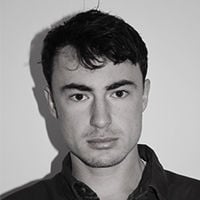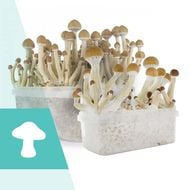
An Interview With Jon Hopkins About Music For Psychedelic Therapy
This conversation with Jon Hopkins explores the inspiration and motivation that led to the creation of Music for Psychedelic Therapy, a new album designed to be used alongside psychedelics to induce a unique experience; an inner journey.
In this in-depth interview, we have a conversation with Jon Hopkins about his recent release: Music for Psychedelic Therapy. Groundbreaking in its vision, this piece of music is intended to accompany users during the psychedelic experience.
The complete recording of this interview is available to listen to right now on Spotify. Please note: the audio for this interview is in English.
Using sounds that come from the jungles of Ecuador through to the woodlands of southern England, it’s quite unlike any piece of music made before. Sitting somewhere between ambient soundscape and powerful symphony, it is at once deeply moving, and yet strangely neutral. This dichotomy gives it the scope to be a companion to people in the depths of the psychedelic experience, guiding them, but without getting in the way.
Creating the space for each individual to go on their own, unique journey, Music for Psychedelic Therapy is better described as a space in which to be, rather than simply a piece of music to listen to.
Max: What caused you to become interested in psychedelics? Was it a single event, or did it grow over time?
Jon: My relationship with them is quite long and complex. So it started as a teenager when I was kind of experimenting with cannabis, which doesn't get called a psychedelic, but for me is one of the strongest there is. And I didn't know what I was doing. I definitely had too much of it.
But I think what happened as a result of those experiments was a kind of inner world opening up to me that I really had no idea existed. And it kind of pulled the veil back and showed me just this inner world of miracles. And they were always very blissful experiences and always in combination with music as well, like an extreme body rush and incredible visual imagery and all kinds of stuff.
But then after a couple of years of that, I think it just stopped working for me and I was chasing that place and unable to get there, and it actually started to have a detrimental effect on me. So I stopped completely and I didn't actually do any more psychedelics until I was about eight years older than that. So I was about 26, 27, and in that time I'd actually learnt to meditate and I'd learnt breathing techniques, so I think I felt a little bit more grounded in myself and a little bit more like I had the capability to navigate that internal world.
Max: I think being able to somewhat dispassionately observe what's going on in your mind really helps you make the most of the psychedelic experience, rather than it just being confusing.
Jon: Yes, exactly. Exactly. So then when I came back to do mushrooms for the first time, it was in an incredibly safe and beautiful environment on a beach in Scotland with a whole load of my oldest friends. And, you know, well, I wouldn't describe it as ceremonial, but it was more kind of, you know, drinking and having a whole load of mushrooms.
But it was just so spectacular and so peaceful, and there was so much laughter. And it sort of felt like I got a full kind of awakening to the majesty of nature. As the dawn came up I was just staring at everything with wonder, as if for the first time. We've all had those moments on mushrooms and it was pretty life-changing really.
And I remember thinking at the time, isn't it incredible you can pick a mushroom out of the ground and it actually gives you an experience that makes you want to protect the ecosphere that produced that mushroom? So it's almost like it felt like a part of the self-preservation technique that the Earth has within it, you know?
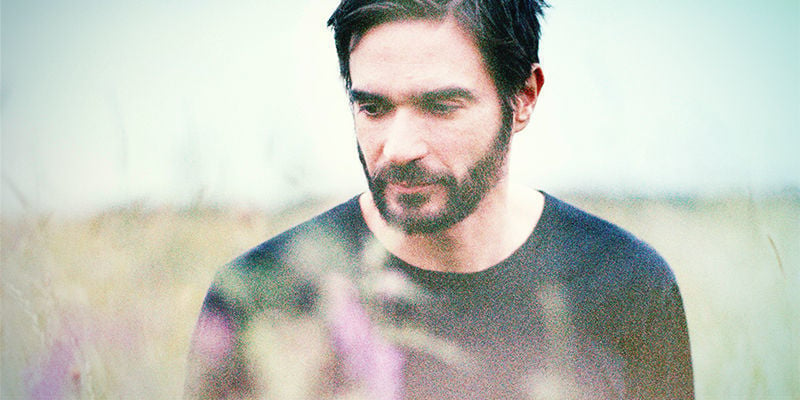
Max: Yeah, quite a beautiful way of thinking about it, actually. So do you have a specific view of the psychedelic experience, what it is, or?
Jon: Well, there's so many. I mean, they're all very different, really, depending on the substance. The psilocybin experience for me is one of the kind of outer-looking ones, and there are the ones where you go deep on an intentional inner journey, and those can be much more intense.
The DMT experience sits entirely apart from that as a whole; a different, different plane of reality, which doesn't seem to have anything to do with our petty human interests. And then, yeah, that's just such a completely different thing that just doesn't relate back, whereas psilocybin will for sure kind of guide you into areas you maybe need to look at within your life.
Max: I think “guide” is a good term. I find it always seems to hold your hand and seems to know what's best. Even when it takes you to dark places, it does so in quite a nice way.
Jon: Although if you get the dosage wrong—I've been a bit cautious myself because I don't want that experience—but I've heard that the mushrooms can get pretty tricksy and that they have their own strange agendas, once you go into the really ludicrous doses. But then, that's not something I do.
Max: So with your album, Music for Psychedelic Therapy, I'd been intrigued to try it out for a while, and I did. I took mushrooms with an MAOI and that was more akin to a DMT trip really.
Jon: Oh wow, how long did it last then?
Max: It lasted probably about 8 hours, but I peaked higher than I've ever peaked before, and stayed at that peak for the entire trip.
Jon: That sounds pretty full-on.
Max: Yeah, it was. I was having visions and things. It was quite weird, but quite spectacular. And your album; your album was a very good part of it.
Jon: The problem with the album is that it needs to be 8 hours long really. Problem is, it would take me eight years to make that. I mean, I will do other volumes of it for sure. But yeah, it's the length of time for ketamine really, that's the one that it kind of sits over best.
Max: Did you design it specifically for that?
Jon: I mean, not in a conscious way. Ketamine doesn't get called a psychedelic, but for me, if you take psychedelic at its meaning, as “mind revealing”, then for me it's about as psychedelic as they come.
So what I think, where I think the album comes from, is a mixture of ketamine experiences and DMT experiences. I think a lot of sounds are actually much more related to the DMT experience, but they're contained within the experience that ketamine provides, which has a certain safety and lack of fear to it, and is short as well.
For me, and a lot of people agree with this general statement, music, particularly immersive sound designed music like this, takes on such a physical quality on ketamine and it becomes your whole universe, your whole place that you inhabit. And so for me, it was like having this superpower of being able to create a universe and then inhabit it for an hour; like you're making a kind of sonic palace and then you can go and hang out in there. So that was a bit like a dream, really.
Max: Yeah, absolutely. I think the Sonic Palace thing is interesting because I was trying to meditate through it when I was listening to it and had this sort of fractal, but not shifting over time—this sort of structural world opened up behind my eyes and took on these dimensions I couldn't comprehend. But it was very much a kind of a form, but not a strict form. But it was very present and was really enjoyable.
Jon: Well, I mean, when I was coming to the closing stages of making it, I was using ketamine journeys maybe every three weeks just to test it, to see how it was working. And, you know, there was this intuitive knowledge when it was finally correct, when I was finding nothing else that needed to be changed, that this is it. And what this is, I don't know. But I just knew that it was finished. And so there was this strange kind of intelligence behind the process that didn't feel like it came from me, but felt like it was, you know, a very intuitive thing.
Max: Okay, nice. And on that note, when you were making it, did you set out with the idea of the entire piece forming a sort of trajectory for the person listening to it? Because I found that it seemed to have quite a strong sense of taking me to different places and then concluding. Or did that just happen organically?
Jon: Yeah, I mean, my approach to writing music is always organic. So I never plan anything. In fact, I mean, the “Tayos Caves” section of the album was written first, and that was actually intended to be a standalone piece of music. But then when “Sit Around the Fire” appeared, which is the closing track of the album, I realised that I had the closing track of an album.
That’s when it triggered this idea that I was actually going to make a full record of this kind of stuff. So then it's really just about trusting that same intuition that I've trusted with all the other albums, where you just keep working and it all falls into place, and you just have to trust that that's going to happen because the subconscious is in charge.
Max: I think with creative pursuits that giving over to it and allowing it to take the lead is by far the best practice. Or, at least for me as well, things take charge of themselves I think.
Jon: Yes, I think that’s it. It's a process of getting yourself out of the way, as they say.
Max: And with the final track, given the trajectory of the whole experience, I found the words at the end were quite funny because of the way that it builds, and first it's quite a sort of egotistical trip, and then there's a sort of dissolution of the ego toward the end of it. And then the words kind of confirmed that in quite a beautiful way, and it was almost quite funny and just made it very friendly, very collective, made it much more of a… it felt like a shared experience suddenly, rather than one I’d gone through alone.
Jon: Well, that's really nice. And something that's cool about the Ram Dass talk is that even if you are aware of this and you're listening to it or not, he's not talking to a microphone, he's talking to a crowd of people. So in a way, what you're hearing is a collective experience. And you can hear in his voice that he's completely tuned in. You know, he's right in the present moment. And he's really imparting that feeling to people. And to get the opportunity to include that on the album was quite extraordinary, really. It's still quite mysterious to me that it ended up that way.
Max: How long have you been aware of the recording for? Or did you discover in your search for making the album?
Jon: No, it came from a musician called East Forest, who I've been in touch with for a while. And he'd been working with Ram Dass before he died and recorded some of his final public utterances. And then after he died, the Ram Dass Foundation asked him to set some more of these talks that they'd found on tapes to music. So he got in touch with me and sent me this talk, and then he sent me these amazing backing vocals that you can hear on the track. And then I wrote the rest over that. So it just happened. And it just so happened to be, I think it's quite synchronous because it appeared in my life just after I'd finished the “Tayos” piece and I was already realising just how rewarding and restorative it was to make this kind of music; to really make the kind of music that I feel that I'm here to make.
Max: Okay. Because I've had a trip recently where I realised that there's a kind of strange conflict between everyone’s life being fairly similar, but also everyone having quite a lonely existence. And I discovered afterwards that you had said something similar or written something similar about that.
Jon: I've had that experience too, and it's interesting. I was at Glastonbury a couple of weekends ago with a bunch of super close friends and my brother, and it was so much fun and you know, the feeling of the magical bits of Glastonbury, I don't really go to any of the huge areas, but the little special bits that are the things that are unique to Glastonbury, I really just remember feeling, so vividly, this blissful togetherness—and then it just shone into sharp focus just how much that isn't the case for us most of the time, and it was very sad.
But at the same time it’s really important to tap into those collective bliss moments, to remember that they're possible and even that they should be the baseline, you know. In a community, in a healthy community, that's how you might feel a lot of the time. But we've somehow backed ourselves into a corner of isolation, and we often forget that. And that’s something that psychedelics can obviously do, is just suddenly remind us of all that again, remind us of what was always there.
Max: Yeah, I think that's quite connected to nature in the sense that when I'm on psychedelics, I feel a sense of oneness and simple being that I also find sober in nature but struggle to find elsewhere in the world. It’s the same with art actually; I think art has a similar way of bringing people together under a single umbrella, doesn't it?
Jon: Yeah. I mean, that for me feels like its purpose. It certainly feels like the purpose of... I mean, the reason I make this stuff is... I can’t remember where this quote comes from: “you make what you want to see in the world” or “you make what you want to hear in the world”. So this music that I was making, this album, didn't exist. But I needed it to exist, primarily for myself. And then if it's going to work for me, then hopefully it will work for others.
Then it's been extraordinary releasing it because obviously it's a very non-commercial type of album that can't be played on the radio and has to find its way organically. But it's been doing that in an interesting and slow-burning kind of way. And when I meet at various events, whether they're album-based events or gigs of my normal kind, which are obviously much more about dancing and stuff, I found that there have been some great responses, more than I dreamt of really, from people that have found it genuinely helpful, in particular relating to things like grief and understanding grief and giving perspective on grief. That seems to be something that it's done for people, which is... I don't know how it's doing that.
My own heartbreak is kind of included in there just because everything you write includes all of your own experiences. And even though I've never experienced the loss of a loved one in terms of death, I have obviously experienced loss of people and loved ones in my life. So there are currents, there are undercurrents of heartbreak in there, which I think music can give a sense too, in a way. It can make things, it can poeticise those things which are otherwise very difficult to live through.
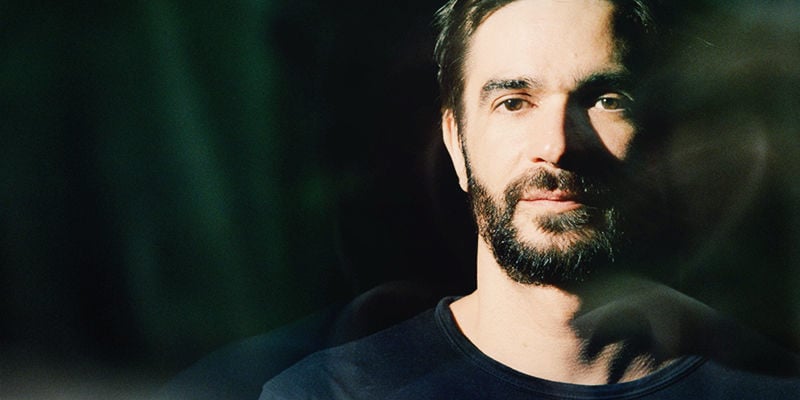
Max: Yeah, I'm sure. I guess it's just pure expression really, isn't it?
Jon: Yeah. And in particular music without lyrics. You know, it's interesting as I'm basically being as honest as it's possible to be with this record about my internal world and my own experiences. But because it's abstract, no one can actually fully know, and they'll be able to interpret it however they want and people will hear different things in it. But I just know, I know that it's a direct translation of my core self and it's an amazing privilege to be able to do that, right?
Max: Yeah. I guess if you strip away language and words, then you maybe strip away the ego a little bit as well, don't you, because you're not so worried about explaining yourself in any sort of concrete terms?
Jon: Yeah. This is a very egoless release in a way, because obviously, like I said, it doesn't have the potential to be commercially successful. I wasn't thinking about that kind of thing. Not that I'm fixated on that normally, because I wouldn't have spent 20 years making instrumental music like that, some of which is quite strange. But, you know, maybe I always subconsciously had a part of me thinking that this has to work in front of a crowd or whatever. And I just didn't think about any of that stuff. It was just very pure as an experience, to make. So yeah, that was quite a beautiful, refreshing change.
Max: Is it something you're able to return to yourself, or could you not do that in terms of taking some psychedelics and getting something from it?
Jon: Definitely. I mean, for me, the trick is not listening to it for long periods of time so that it retains that special quality. With other albums of mine, I mean, the real bliss for me is in the creation phase because by the time it's finished and released, I've built a live show of it and then I have to start playing it all the time, and then the tracks lose their magic, at least for a while, until you start to work out interesting new variations of them.
But because this album can't be performed, you know, it is what it is. We have these immersive playback ceremonial events, but that's just really just hearing the album on multi channels and lying back and absorbing it; it's not about performance. So basically, I haven't had to listen; I haven't had to ever over look at it, which means I might not listen to it for six months and then I'll find that I'm able to have an amazing trip which involves it. So that's really nice because yeah, I mean, that was ultimately the purpose.
Max: That must be quite a beautiful experience to have, because then your past self is taking your present self on a journey.
Jon: That's true. Yeah. That's a nice way of putting it.
Max: So I read that someone else played back a set of recordings you had in a natural setting, then re-recorded them and sent them back to you. And I think that very natural sound is quite tangible throughout the whole album, which for me especially made it feel… I think that added to the sense of space because you can hear a kind of openness at points.
Jon: Yeah. Well, that was me and my friend Dan, who records under the name 7Rays. He's someone who I've shared many DMT experiences with. And I think, not that I was thinking about it particularly consciously when we were making it, but I wanted to try and put into the album that feeling that you get when you briefly walk out of the room you've been tripping in and into the night. You know, when you have to step out for some reason and the moon is up and there's the silence, in this case, the woods in Devon. And you might hear an owl or you might just be going for a piss or whatever. But there's this certain… you get confronted by such a different world there for a second.
And then when you go back inside the room and the music’s still playing and the trip almost has paused and then it continues again. So you'll notice moments like that on the record, in the second half in particular. There's this idea of going in and out of the room, and then when you're back in, you're really back in again. And that's certainly something that I remember someone describing. That feeling that the room starts to take on an energy, you know, or “the acid room”, I've heard that before. People can walk into it and feel this tangible energy in there, of the experiences.
Max: Yeah, for sure. It's funny that you mentioned the owl as well, because there's a moment in the album with the sound of an owl. And I remember that it was a beautiful opening up, sort of like peace and just quiet and calm, which I guess is exactly what you described.
Jon: Exactly. So all of those things, all these moments, all the birds that you hear there, it is just what happened to be there. That's the thing, there was no placement, there are no library sounds, there's no like, oh, I need an owl here. It's like, Dan was outside smoking his pipe under the moonlight, and he did a lot of the field recordings for it, they come from him, the ones that aren't from Ecuador. And the owl just happened to be there. So it's like, okay, the owl clearly needs to go on the record as well. And just allowing myself to trust the fact that these things want to be involved.
Max: It's quite beautiful that it's a fusion of Ecuadorian rainforest and Devon.
Jon: Yeah. I mean, this is really just again more about that translation of my life experience into music. So, you know, the album was born in Ecuador for sure, but the reality of most of my psychedelic experiences has been the woodlands in England, and I'm becoming increasingly interested in that because we once had our own indigenous wisdom here. And, of course, it's been largely obliterated.
But there are people that still know about that stuff, and you can certainly feel it when you go to places like Devon and Cornwall and actually up in the Scottish Highlands as well. And in Wales and Ireland there's more of that magic still there I think. And I'm becoming very interested in that these days.
There tends to be this fixation on Ayahuasca and Huachuma (San Pedro). Those traditions have been preserved and everyone knows about them. But we had our own ones here, and I'm very interested to learn more about that. And we had our own shamanic ways and our own shamanic music and all that stuff. So this is my equivalent of that really, to include a lot of these kinds of soundscapes that I experience and I grew up with.
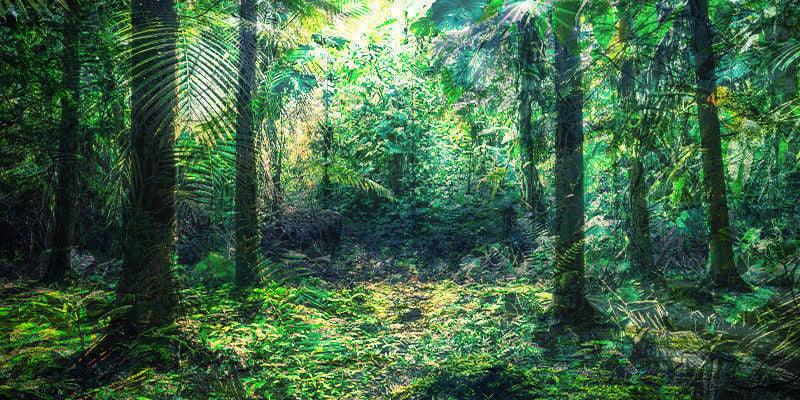
Max: I've got a theory that Bristol's alternative kind of drug culture is a direct thread from pagan, druid religions in the West Country thousands of years ago using mushrooms.
Jon: I’d be fully up for believing that. Yeah, I mean, that magic is there. And I don't think it's by any means all gone. And I think something I'm going to become interested in is learning about our own mythologies and our own ancient history. It’s just so much of it is obscured. And, you know, there was such a conscious effort to eradicate it by, well, by many different groups of people in a row, really, but obviously Christianity being a big part of that.
Max: Yeah. And even now, I think, Druidism, is that what it’s called?
Jon: Druidry.
Max: Druidry...
Jon: Possibly.
Max: ...is treated as a joke, whereas kinds of shamanism from other cultures are revered as these mystical, wonderful things. But as soon as you try and extract the UK’s own history, it becomes viewed as hippie nonsense. And there's probably a lot of value in it as well.
Jon: To me, it will be the same amount of value. It’s just that, because on the whole those kinds of indigenous cultures generally, whether here or there, didn't tend to include any written records, and everything was oral tradition, which means once it's gone, it's gone. And that's difficult.
You know, there's just so much uncertainty about, for example, the origins of Stonehenge. There's no evidence it's actually to do with druids, but lots of druids go there. I mean, we just don't really know it's the truth, but it's a mystery. Mysteries are alluring as well. And I think what I love about making music about this kind of thing is that you're not making any statements of fact. You're just expressing a feeling and a feeling of a place. And some of that magic from the land finds its way into music that's being made.
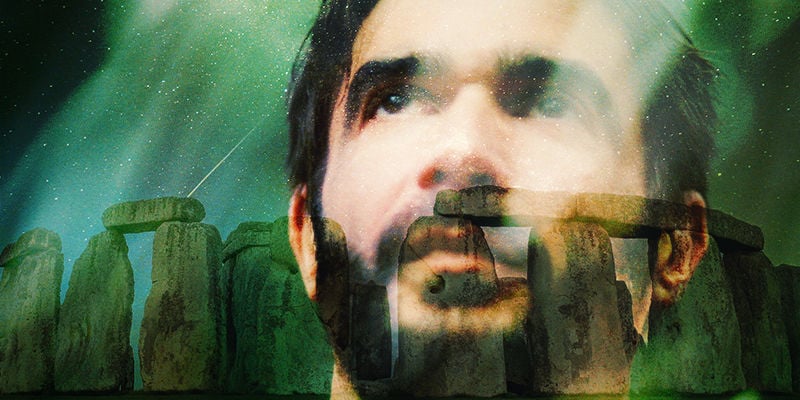
Max: And you meditate, I gather?
Jon: Yeah. It's been a long process for me. 22 years now, I think, roughly. And lots of different kinds, with the one I learnt that's been most powerful is transcendental meditation (TM). That was about eight years ago that I learnt that. And that's been the biggest game changer for me. But Kundalini meditation and lots of different types of breathwork and yoga as well have all been very important.
Max: And do you engage with these things when on psychedelics?
Jon: Breathwork definitely. There's never really been any need to do TM on psychedelics, I think. I don't know. It's pretty trippy as it is. Yeah. I mean, I don't know about you, but on mushrooms I always feel a great urge to stretch and move my body in various yogic ways. It just really puts you in touch with where your tension is held.
Max: Yeah, physical movement on mushrooms is an incredible feeling. And do you have a favourite psychedelic, or just general drug?
Jon: Um, beer, frankly. But aside from that, I think I go through phases. DMT has to be credited as the most influential, most powerful. But I may never do it again. I feel like I don't need an experience that extreme to happen again. I felt like I was in school when I was doing that and I had to learn those lessons. Lessons that were necessary to make this album, but now I've made it, I'm not sure if I need to re-enter.
So I suppose really ketamine would be the one. I have to make sure I don't take it very often, because I'm aware that it has this moreish quality which other psychedelics don't have. But there's something about the length of it and the fact that you can be completely clear of it within an hour and a half and yet you're able to access and almost reorder very deep parts of yourself into a healthier state. And that to me feels quite profound and very modern; a medicine that is very necessary in a modern situation.
Max: Fascinating. I’ll have to rediscover it. I ruined ketamine for myself many years ago, and I've been scared of it ever since.
Jon: Yeah. Well, if it helps, so did I. This is the problem with obviously everything being on the black market, is that there's no education and there's no proper regulation around things. So I took loads of it when I was 28 after having drunk like four pints, having no idea that they are very dangerous to interact with each other. And I was very sick and it was one of the worst experiences of my life. It was like going upside down backwards on a roller coaster for an hour whilst being sick. It was just like never-ending hell.
So I didn't take it again for so many years until it was reintroduced, you know, as its more medicinal properties first started to be known. And I started to realise that the term k-hole is almost offensive in a way because it's such a sacred space. The idea of doing something like that at a club is for me the least appealing. It's not safe. But I would say meditate and make an intentional space at home and do a sensible amount to see how your tolerance is. And then the right music and the right room and maybe the right person to sit for you would be the way to re-enter, if you were going to.
Max: Do you use trip sitters? Because I've always found it a strange idea in the sense that unless you're with someone who understands these experiences with incredible empathy, I find sober people incredibly unsettling when I'm on these drugs.
Jon: Oh, yeah. No, it has to be someone who you know, I think who you actually know quite well and who is either on a small dose themselves or is just quite inherently psychedelic. I mean, doing it with some random sober person would be… I would feel that presence to be very unhelpful. But I mean with ketamine it tends to be solo, but with DMT it would always be, because it's only a 15 minute trip, me and Dan and we would just take turns to sit for the other. And that's kind of easy, you know?
Max: I once did the DMT with my friend. It was the weirdest experience of my life. Neither of us spoke about it whilst it was happening and then afterwards afterwards I was like, “I didn't know who I was during that”. And he said, “Yeah, neither did I”. And we'd merged consciousnesses somewhere in the middle and I felt, in the same way that a certain key in music has a certain feel, I just had this sense of what it felt like to be him. Very weird.
Jon: That doesn't surprise me at all, in a way, but it's just how magical it all is, really. And actually, that happens with ketamine as well. You can psychically communicate. I'm convinced of this. You can definitely… if you're in a room with someone doing it and you're doing it in the right way, and you're kind of flying along together, and you’re communicating energetically rather than verbally. And that genuinely feels true to me. It's obviously not something you can measure. And it sounds a bit like magical thinking, but I've just experienced it so many times and it doesn't really matter whether it's true or not because that's the experience, you know?
Max: Yeah, I think minds, even if it's through the body still in some subtle way we don't understand, certainly have means to communicate other than language.
Jon: Yeah, of course.
Max: Are there any other pieces of music you'd recommend for psychedelic therapy, other than your own?
Jon: Well, there’s not, there are not many long-form ones. That's why I wanted to make a long-form record. But I mean, there's a whole load of short pieces. One of my favourites is called Vaporware 01 by Donato Dozzy, and then Evening Side by Four Tet. There's some tracks on the new Kelly Lee Owens album. I can't remember the names, but there's this beautiful one named after the Welsh word for breath (Anadlu, LP.8), and she keeps intoning that. And so I would highly recommend people listen to the ambient tracks that are on that album as well.
Max: Wonderful. Cheers. And finally, this one is just for me because I've been wondering about it for years. On Immunity, the song, which is very, very dear to me, what is the sample for that kind of, like, it's not quite percussion, but it keeps the beat all the way through?
Jon: Oh, it's the piano pedal. It's actually the soft pedal of my piano which creaks and then it's the sustain pedal as well. So basically it's using those as the drums.
Max: Wonderful. Okay. I've been trying to figure it out for years. Now I know. Cool.
Jon: Yeah.
Max: Cheers man. Thank you very much.
Jon: Yeah, that was a very nice chat. Have a nice weekend.
Max: Awesome. Thank you very much.
If you're interested in trying Music for Psychedelic Therapy yourself, we'd highly recommend it. Though an incredible piece of sound design in its own right, it's hard to overstate just how profoundly well suited to the psychedelic experience it is—as the name suggests! So if you need a psychedelic accompaniment to this piece, head over to the Zamnesia Shroomshop to find the perfect companion.
Shroomshop
Everything for mushroom enthusiasts. Grow kits, truffles, microdosing packs, spore syringes, vials, and cultures.
To purchase Music for Psychedelic Therapy, head over to Domino Records.
Check out the Dream Machine for a unique, immersive experience using the music of Jon Hopkins.
To hear any of the other artists mentioned in this interview, check out:
-
 4 min
3 March 2020
Best Psytrance Festivals Of 2024 In Europe
Summer is nearly here, and the festival season is fast approaching. If you're into space travels, psytrance, positive vibes, and festivals, look no further. Check out the ultimate Psytrance...
4 min
3 March 2020
Best Psytrance Festivals Of 2024 In Europe
Summer is nearly here, and the festival season is fast approaching. If you're into space travels, psytrance, positive vibes, and festivals, look no further. Check out the ultimate Psytrance...
-
 6 min
20 May 2017
Best Psytrance Music Artists - 10 Acts Representing The...
We take a look at the 10 best Psytrance acts combining elements of the old and the new to produce engaging, 21st century psychedelia for the masses.
6 min
20 May 2017
Best Psytrance Music Artists - 10 Acts Representing The...
We take a look at the 10 best Psytrance acts combining elements of the old and the new to produce engaging, 21st century psychedelia for the masses.






 United States
United States
